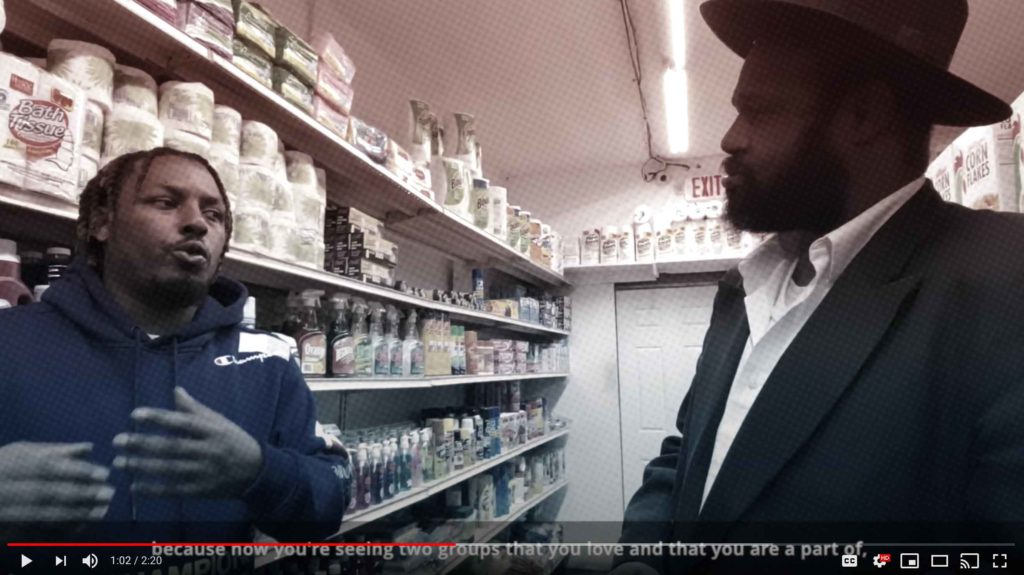
By Baruch Lytle
It’s not hard to forget about 2019—not after a year like 2020, defined by covid, riots, political upheaval and chaos. If you are Jewish, you may feel like you haven’t had a break—every local and national crisis has ultimately led in one form or another to the oldest of crises, one that has stood the test of time: antisemitism. During the worst peaks of the Covid crisis, we saw the ugly head of our elected leaders, like Mayor Bill De Blasio, who pitted the entire city—and, in some cases, the country—against the Jewish community. He even went so far as closing parks and businesses specifically in Jewish neighborhoods while allowing other communities to return to business as usual. And Governor Cuomo lost no time in using his nationally-televised news conferences to blame the spread of the coronavirus on religious Jews, saying everything would be under control if only those “Jews would follow the rules.”
At the same time, riots that resulted from the tragic death of George Floyd led to the uprising of a civil rights movement—yet even they couldn’t resist the temptation of giving in to age-old tropes about Jews controlling the world and that Israel was nothing more than a “modern-day apartheid state.”
In the end, 2020 proved once again that America couldn’t shake its temptation to vilify its two favorite target groups: Blacks and Jews. And yet this all followed 2019; a year that was marred by the heartbreaking and nonsensical collision involving both groups, as the Jewish community lived in constant fear of the waves of violence (at various points reaching multiple attacks per day) visited upon the Jewish communities by some of their Black neighbors.
Where did this come from and how are we to control it? Who was mostly at fault, and why? Does it even matter? The most typical responses range from “arrest them all!”to “we have to learn to communicate!” Many in the Jewish community passionately took sides on the issue and marched in solidarity to demand more policing, but…the Black community, our elected leaders, and the city as a whole, barely even noticed. Yet, even as 2021 brings hope that everything in the past can stay in the past—we all know better than to think it isn’t already back to haunt us. Therefore, in this climate of hate and rage towards Jews, who we vote into office and who we form alliances with matters now more than any time in recent history. What we decide, Blacks and Jews, for our own backyard will make all the difference. Will we make the necessary efforts to learn from each other, or will we give up and slide back into the comforts of our ethnic isolation and cultural biases about each other? Will 2021 and 2022 be nothing more than a repeat of 2019?
Some New York City officials, like Councilman Robert Cornegy—whose Bedford-Stuyvesant-Crown Heights District 36 borders both Williamsburg’s predominantly Satmar community and the Lubavitcher community of Crown Heights, are optimistic about the future. “Crown Heights was a place of racial strife for decades,” he said. “And we worked diligently to get to a place where we can have a community, so that we could live side by side.” Many of the current candidates running for mayor, the City Council and borough president have committed to fighting antisemitism in refreshingly innovative ways, like going into our city’s schools and educating the youth so as to root out antisemitism in the place we fear it most: our nation’s future.
Part one of a new series I’m calling Listen To Us takes a look at some of the potential reasons behind the antisemitic sentiment prevalent among some youth in Black communities, and how to potentially address the core issues—through the eyes of someone who knows best.
PART 1: LISTEN – How To Deal With Black Youth Attacking Jews On The Street
“My name is Elimelech Zephyrine, I am 19 years old, and I live in Crown Heights, Brooklyn.”
Elimelech is currently on break from a semicha program he attended in a kollel in one of Judaism’s most iconic communities. The way he expresses his love and passion for Yiddishkeit, his black hat, white shirt, everything about from the inside and out is the prototype young Jew- you would not be able to make him out in crowd full of other yeshiva bochurim, except for the fact that he’s African American.
“I grew up in Brownsville, Brooklyn, and I joined the CH community when I was 11 or 12 along with the rest of my family. My father was studying Yiddishkeit since he was 15 and when he got married, he decided to bring us all into Judaism. We thought about moving to Crown Heights but we ended up staying in Brownsville.”
Many Jews would cringe at the thought of moving away from the Jewish havens of Brooklyn like Williamsburg, Boro Park, Flatbush and Crown Heights to an outpost like Brownsville. But you can hear a spark in Elimelech’s voice when he points out that “There’s is a flourishing community here now, more Jews are moving to Brownsville.” And then a greater spark when he exclaims “but hopefully the next [move] will be to Eretz Israel, you know?”
The Brownsville section of Brooklyn is mostly a black and Latino enclave with just a splattering of everything else, so being a Jew—complete with yarmulke and tzitzit—Elimelech was sure to stand out and, sadly, he often become a target. “There were times when I was younger; there were kids that would bully you because of your differences and you not being so into what they’re into—and a lot of peer pressure—and if they’re doing something that’s not good they want you to also do it,” he explained. “It calmed down when I was 11 or 12 and when I got to middle school, there were still a lot of fights, but I was able to handle it differently. I started to become more friendly with certain groups of kids in order to protect myself so I wouldn’t have to deal with constant bullying or anything so I grouped up with other kids that were considered popular or cool and started to hang around them, that way I became more accepted, like people weren’t so worried about my religion.”
Even as Elimelech grew older and pursued his dreams, such as going to a yeshiva when he was 14, the problem seemed to only get worse. His bullies weren’t little kids anymore; they were now 17 and 18 and getting more violent. “It’s like they would say, ‘I don’t like this kid because he’s different—I don’t know why I don’t like him—like he has something I don’t have.”
Again, Elimelech found it necessary to make friends with those who would otherwise become his enemy. “Eventually I started to group up with more kids, but I knew they wouldn’t be a good influence on me. But it was also a type of extra protection.”
His family did everything they could to push him in the right direction. “I am very thankful for my family—they were all worried about me, my father especially wanted me to go yeshiva at the time and I didn’t believe I could go to yeshiva because, because my family were Gers (converts) and going to yeshiva meant I had to know halacha (Jewish law) well. You have to know everything, and I felt I wasn’t prepared enough to go to yeshiva, but Hashem got me in at the right time.”
Elimelech eventually became more independent; going to shul on his own, visiting the local seminary Hadar Hatorah where he met a few other Black Jews as well. I spent time with Elimelech to ask him a few questions about his experiences in Brownsville and Bedford Stuyvesant to understand the annual summer ritual of young Black kids attacking Jews on the street, and how to deal with this phenomenon.
Baruch Lytle: What did you learn as a young Jew growing up in Brownsville and Bed-Stuy?
Elimelech Zephyrine: Being in Brownsville helped me to be able to communicate with people from different backgrounds, you know and realize people are just people and sometimes racism doesn’t have to destroy a person’s communication.
BL: Being Black did you ever feel isolated from other Jews?
EZ: Growing up I looked at Jews like a mystery I was curious but also envious of what they had. So sometimes I would see Jews walking down the street and they would see me with a yarmulke or tzitzit on and they wouldn’t understand because I was with 10 other people who were not wearing yarmulkes, and sometimes they would notice that and they would stare, and then someone would mention that ‘he’s looking at you’. And I’d be like—okay—what do you want me to do about that? And I’d automatically become angry—like he’s supposed to be the same faith as me but we’re completely different.
That caused me to have a little animosity towards ultra-orthodox Jews, because I really felt like they didn’t look at me like I was 100% Jewish. Even if I was to go into their community I would never fully be accepted.
BL: Thankfully that turned out to not be true. It’s obvious that you are loved by your community. But do you think misperceptions about Jews has something to do with why these young kids target them?
EZ: A lot of times the kids just have curiosity and also they just wanted to speak to a Jew and they don’t want the person to have this fear that “oh this person is going to hurt me”.
That [perception by Jews that Black people are dangerous] always would get kids angry and me also- and sometimes I would have fun with them and chase them as well. In Bed-Stuy, we’re close to the Williamsburg community and sometime you’d see Jews walking and we be like ‘ok get out of here.’
BL: So there was anger about how you were being perceived. But was it all just for fun? Was there outright hatred of Jews as well?
EZ: It wasn’t just antisemitism -it was more seeing an innocent person who was helpless someone weaker than you. It tends to make kids want to have fun- because they know how Jews perceive black people- oh they’re dangerous– so that mentality makes a person want to say ok let’s chase after them and see if they really going to have a heart attack-let’s take a video.
BL: What are your thoughts about the attacks around Crown Heights?
EZ: In Crown Heights you have a few crazies which is really normal to have there, and many happen to be black, and then you happen to have people who are just targeting Jews, just bullying people they feel are weaker than them and a lot of Jews are giving them that reaction; but if you give a reaction or show you’re scared or afraid, they’ll keep doing it. Every time a Jew goes walking down the street they give off a sense of fear so we’d just attack.
BL: Okay so now we understand better, but now how to make it to stop. What can be done about it?
EZ: I would say you need to community events, cookouts, sports activities that these kids should get to know each other and get a feel of how it is to be around Jewish kids and see they are not so different. These kids think Jews are being brought up to think Blacks are lower and Jews are more upper class or more important than anyone else. If we’re talking freely and being open and both sides talking, and when you teach them our Jewish history that makes black people want to connect with you even more. Everything has a meaning and everyone has a purpose- when you show blacks that spiritual side, that everything has purpose, and they have purpose, black kids are drawn to this and drawn to you.

